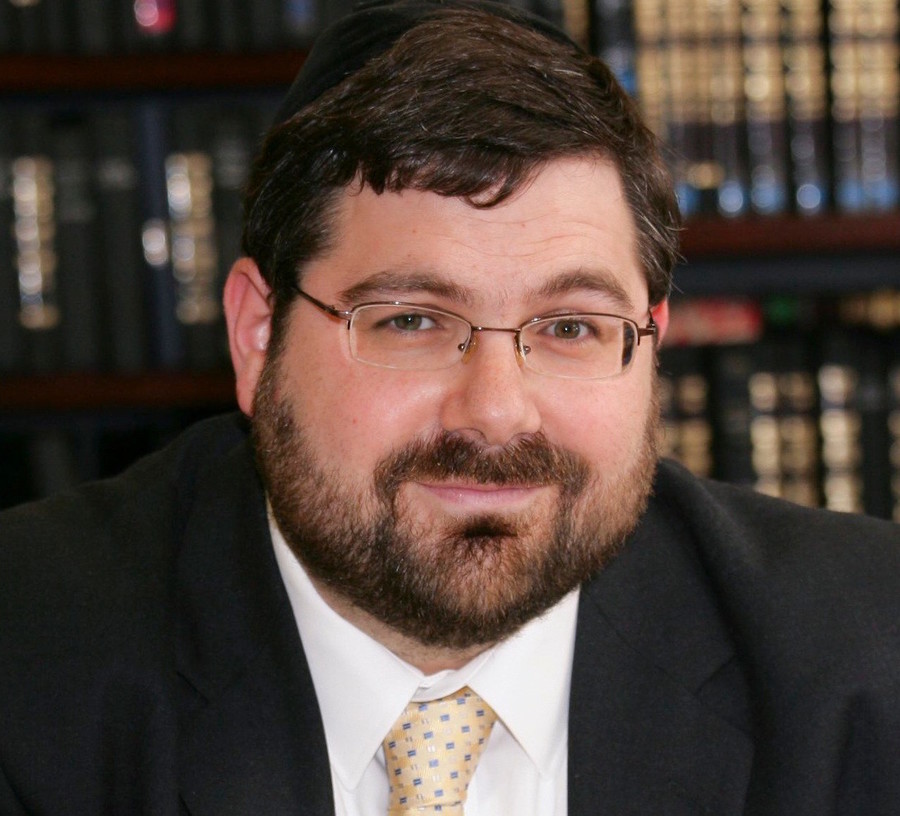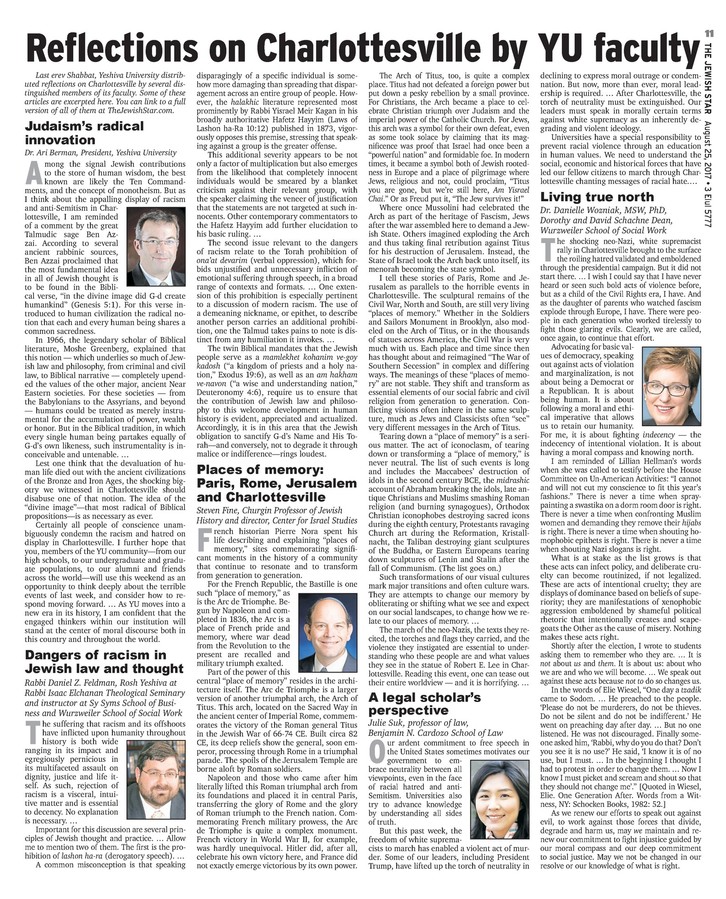Dangers of racism in Jewish law and thought
On erev Shabbat following the disturbances in Charlottesville, Yeshiva University distributed reflections on these events written by seven members of its faculty, from RIETS to the undergraduate and graduate schools. The Jewish Star features abridged versions of five of these articles. Link here for full versions of all the articles.
• • •
By Rabbi Daniel Z. Feldman, Rosh Yeshiva at Rabbi Isaac Elchanan Theological Seminary and instructor at Sy Syms School of Business and Wurzweiler School of Social Work
The suffering that racism and its offshoots have inflicted upon humanity throughout history is both wide ranging in its impact and egregiously pernicious in its multifaceted assault on dignity, justice and life itself. As such, rejection of racism is a visceral, intuitive matter and is essential to decency. No explanation is necessary. …
Important for this discussion are several principles of Jewish thought and practice. … Allow me to mention two of them. The first is the prohibition of lashon ha-ra (derogatory speech). …
A common misconception is that speaking disparagingly of a specific individual is somehow more damaging than spreading that disparagement across an entire group of people. However, the halakhic literature represented most prominently by Rabbi Yisrael Meir Kagan in his broadly authoritative Hafetz Hayyim (Laws of Lashon ha-Ra 10:12) published in 1873, vigorously opposes this premise, stressing that speaking against a group is the greater offense.
This additional severity appears to be not only a factor of multiplication but also emerges from the likelihood that completely innocent individuals would be smeared by a blanket criticism against their relevant group, with the speaker claiming the veneer of justification that the statements are not targeted at such innocents. Other contemporary commentators to the Hafetz Hayyim add further elucidation to his basic ruling. …
The second issue relevant to the dangers of racism relate to the Torah prohibition of ona’at devarim (verbal oppression), which forbids unjustified and unnecessary infliction of emotional suffering through speech, in a broad range of contexts and formats. … One extension of this prohibition is especially pertinent to a discussion of modern racism. The use of a demeaning nickname, or epithet, to describe another person carries an additional prohibition, one the Talmud takes pains to note is distinct from any humiliation it invokes. …
The twin Biblical mandates that the Jewish people serve as a mamlekhet kohanim ve-goy kadosh (“a kingdom of priests and a holy nation,” Exodus 19:6), as well as an am hakham ve-navon (“a wise and understanding nation,” Deuteronomy 4:6), require us to ensure that the contribution of Jewish law and philosophy to this welcome development in human history is evident, appreciated and actualized. Accordingly, it is in this area that the Jewish obligation to sanctify G-d’s Name and His Torah—and conversely, not to degrade it through malice or indifference—rings loudest.

 45.0°,
Mostly Cloudy
45.0°,
Mostly Cloudy 







